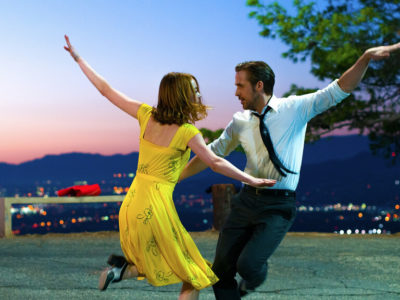La La Land prided itself on representing “the ones who dream.” And yet this Academy Award winning movie musical faced a lot of controversy for doing very little of that. Put aside the obvious white-washing that rightly concerned many. What about the fact that the actors to played “struggling performers” ironically do not struggle themselves anymore? Despite Emma Stone and Ryan Gosling’s excellent performances, the two accomplished actors are the opposite of “struggling.”
The limitations and stereotypes that La La Land proudly presents seem to represent the exact opposite of what director Damien Chazelle hoped. How can we believe in struggling actors who we know are actually at the top of their craft? In a country where the arts are not nearly as supported as they should be, the cons seem to outweigh the pros in this film. And this affects aspiring performers more than you’d think.
“There was certainly an opportunity to make a statement about diversity and the reality of hopes and dreams for people of different colors and ethnicities. But such was not the case,” said New York University Tisch junior David Klein. The lack of diverse representation in the musical was a big aspect of its controversy—especially in a film depicting a white man as the most honest and genuine jazz artist there. “The bizarre and offensive jazz motif is a whole other story I won’t go into,” Klein added.
African Americans started the jazz movement late 19th, early 20th century in the U.S. Sebastian, the film’s male lead, is a white jazz pianist who dreams of opening his own jazz club and re-traditionalizing the art. In the film, they even pit him against John Legend, an actual black pianist. Legend’s character is portrayed as a commercialized musician, advocating for the “future” of jazz through its change. Both musical arguments are valid and present in jazz culture today. But that isn’t the point.
The lack of representation isn’t of the art, but of the person. Why not cast a black man struggling to return to the original roots of jazz—music that is a part of his heritage in this country? Granted, John Legend is not a struggling artist either, but he at least has a connection to the craft. “If it was the filmmakers’ intention to portray white people as the heart and soul of a magical, mythical, aggrandized Hollywood, then at least they should have taken ownership over this choice,” Klein said.
That’s not even the most ironic aspect of the film. Think about how the film’s execs decided to cast successful actors to play struggling actors. You can see the thought process behind it. You want an excellent film? Hire fantastic actors. Stone and Gosling have an on-screen chemistry that no director denies. And this makes their third film together.
But if you want to make a film that doesn’t just represent, but reflects and touches, why not hire incredible, unknown actors? Actual struggling actors? Or just “the ones who dream,” but haven’t gotten their big break? This film was an incredible opportunity to allow art to imitate life. But instead it romanticized an industry that we all know a lot of people do not make it out of successfully.
For people like NYU Tisch senior Thomas Hooker, the film serves as a reminder of the magic of musicals. “I absolutely love it, not only because it’s very nostalgic for someone who was raised on old Astaire-Rogers musicals, but also because it it’s so original and has such an important message,” Hooker said.
Taking on a modern movie musical is a feat on its own. Making it poignant? Even harder. The film’s colors, score and love story truly attempt to pay homage to all the greats that came before them. To many, it succeeded. “I would not have gone about the movie differently,” said Hooker. To a soon-to-be struggling actor himself, the movie simply adds to the fantasy of Los Angeles and the film industry. Movie musicals can still be inspiring, moving and magical. Yes, even in present day.
We can say a lot about what La La Land means to not only acting majors, but to anyone. Are “the ones who dream” any person? Or, as Emma Stone said when accepting her Academy Award, those with “luck and opportunity.” And undeniably, privilege?



















